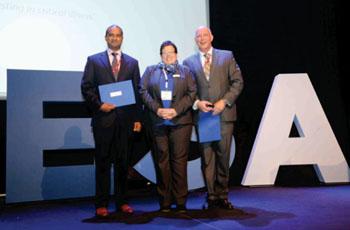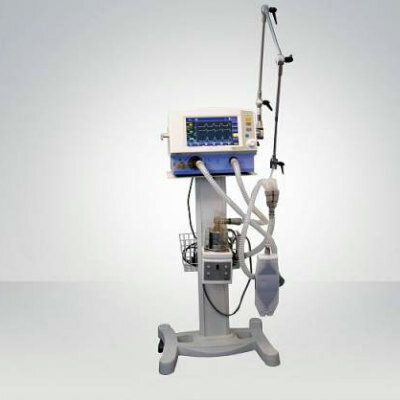Critical Illness Leads to Accelerated Muscle Wasting
By HospiMedica International staff writers
Posted on 26 Jun 2014
The 2014 European Society of Anaesthesiology (ESA) Dräger prize in anesthesia and intensive care was awarded to Zudin Puthucheary, MD, who represented University College London (UCL; United Kingdom), for their study on acute skeletal muscle wasting in critical illness. Posted on 26 Jun 2014
Dr Puthucheary and his group of researchers at the UCL Institute of Health and Human Performance were awarded the EUR 10,000 prize for their comprehensive characterization study of skeletal muscle wasting in 63 critically ill patients (59% male; mean age: 54.7 years). The patients were prospectively recruited within 24 hours following intensive care unit (ICU) admission (from August 2009 to April 2011). The patients were recruited if they were anticipated to be intubated for longer than 48 hours, to spend more than 7 days in critical care, and to survive ICU stay.

Image: Dr. Zudin Puthucheary, Anne Pattinson, and Prof. Andreas Hoeft at the ESA award ceremony (Photo courtesy of Dräger).
Muscle loss was determined through serial ultrasound measurement of the rectus femoris cross-sectional area (CSA) on days 1, 3, 7, and 10. In a subset of patients, the fiber CSA area was quantified along with the ratio of protein to DNA on days 1 and 7. Histopathological analysis, muscle protein synthesis, breakdown rates, and respective signaling pathways were also characterized. The researchers found that it took only three days in the hospital before the rectus femoris muscle mass of the study participants decreased significantly; the muscle wasting continued in the following days.
By day 10, rectus femoris CSA decreased by 10.3%, fiber CSA decreased by 17.5%, and the ratio of protein to DNA decreased by 29.5%. The decrease was greater in patients who experienced multiorgan failure compared to single organ failure. Leg protein breakdown remained elevated throughout the study, and the pattern of intracellular signaling supported a model of increased breakdown and decreased synthesis. Delivering more protein as nutrition did not lead to less muscle wasting. The study was first published online on October 9, 2013, in the Journal of the American Medical Association (JAMA).
The Dräger prize in anesthesia and intensive care was awarded by the chairman of the scientific committee of the ESA, Prof. Andreas Hoeft, MD, together with Anne Pattinson, marketing manager at Dräger (Lübeck, Germany) for UK and Ireland, at the opening of Euroanaesthesia 2014, held during June in Stockholm (Sweden).
Related Links:
University College London
Dräger














